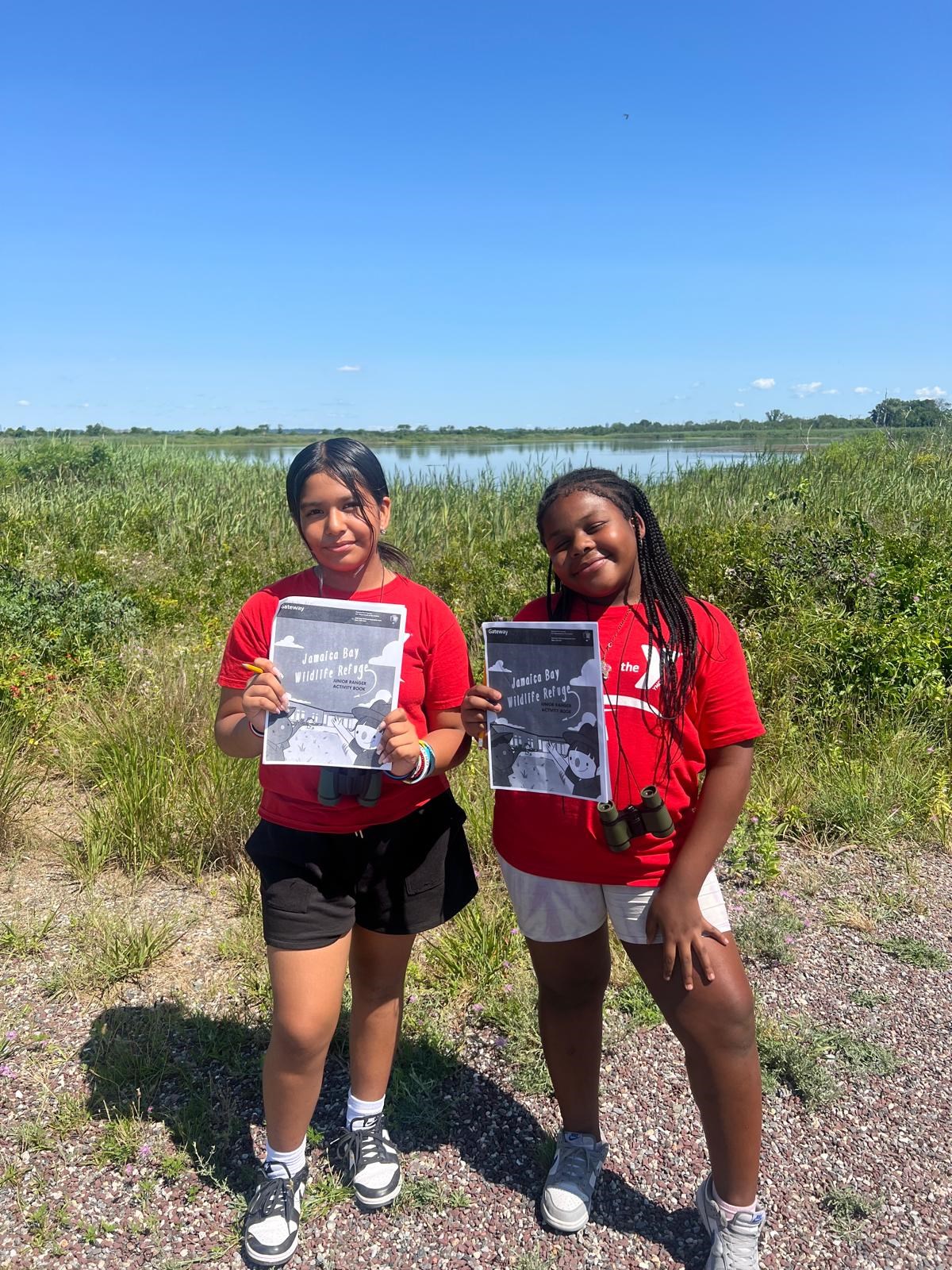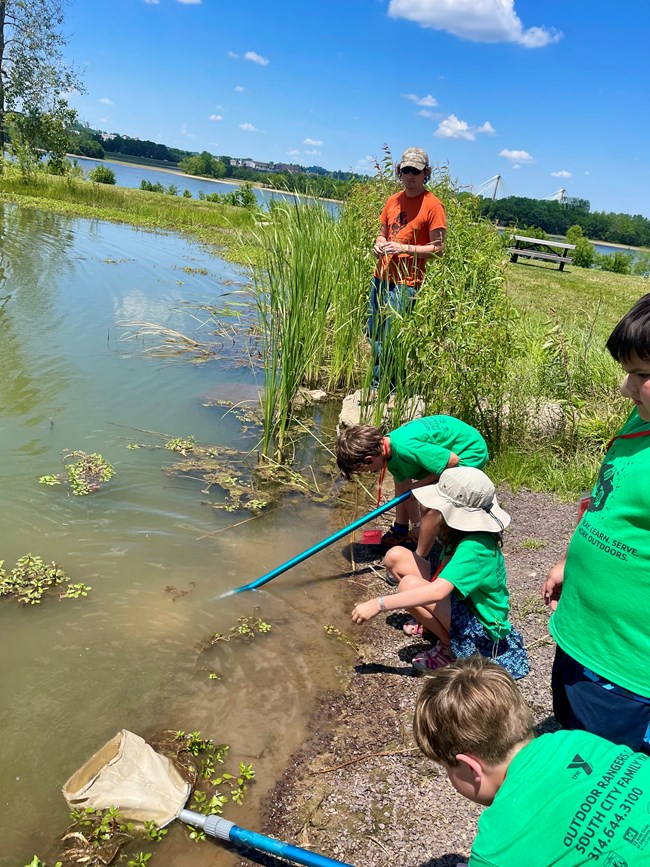Last updated: March 10, 2025
Article
YMCA Partnership
Young campers’ responses help evaluate climate change curricula

YMCA of Greater New York
The program connects local youth with the parks. It promotes the ecological benefits of volunteer services projects and the health benefits of outdoor recreation. Volunteer projects, mostly for the older campers, include trail maintenance, community garden work, and basic park upkeep. Recreation opportunities, for all ages, include fishing, swimming, kayaking, and hiking.
This year, 14 YMCAs in the NPS partnership are testing at least four existing climate change curricula. Some curricula explore urban “heat islands” and the importance of shady green spaces in cities. Others explore the effects of climate change on rural areas and NPS lands. Some are appropriate for elementary-age kids, others for high schoolers.
The goal of the testing is to develop a comparison tool that YMCAs inside and outside the NPS partnership can use to determine which curriculum is best for their local specialized needs.
“The Y serves over 9 million youth and teens a year. We have tremendous summer camp, day camp, and resident camp programming,” says Jennifer Gilburg, the Y-USA’s project lead for the NPS partnership. “This type of curriculum is a resource that we’ll be able to share more broadly for Ys across the country to consider integrating into their existing programming.”

Gateway Region YMCA
“I noticed that once we got into the nitty-gritty of these lessons, they were really focusing and really engaging,” Adams says of the YMCA campers. “For me, it's all about seeing the real-time turnaround of not only the campers’ learning about climate change but their connection to public lands in general.”

Gateway Region YMCA
The YMCA Partnership is one of five youth and young adult programs supported by the Inflation Reduction Act that help fortify NPS sites in the face of a changing climate. The other four are the Community Volunteer Ambassador Climate Cohort, Scientists in Parks, Landscape Stewardship Corps, and the Pacific Islands Conservation Corps.
Learn more about the YMCA partnership.
